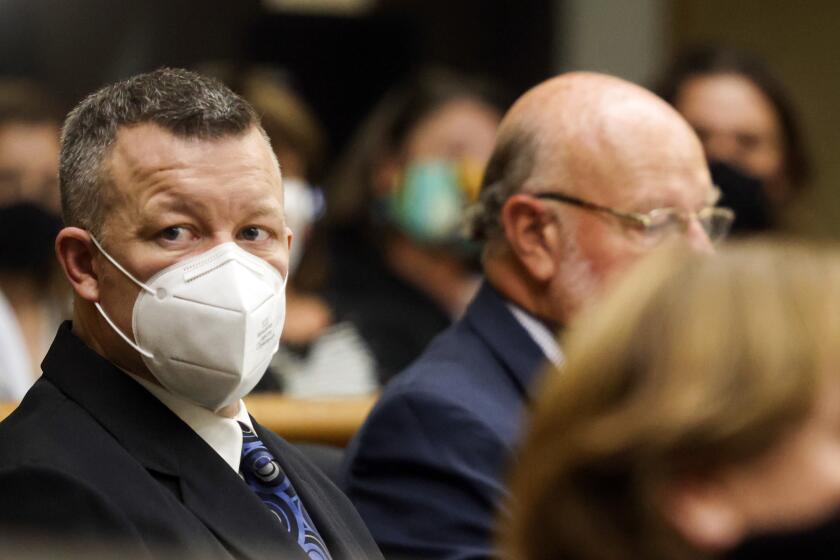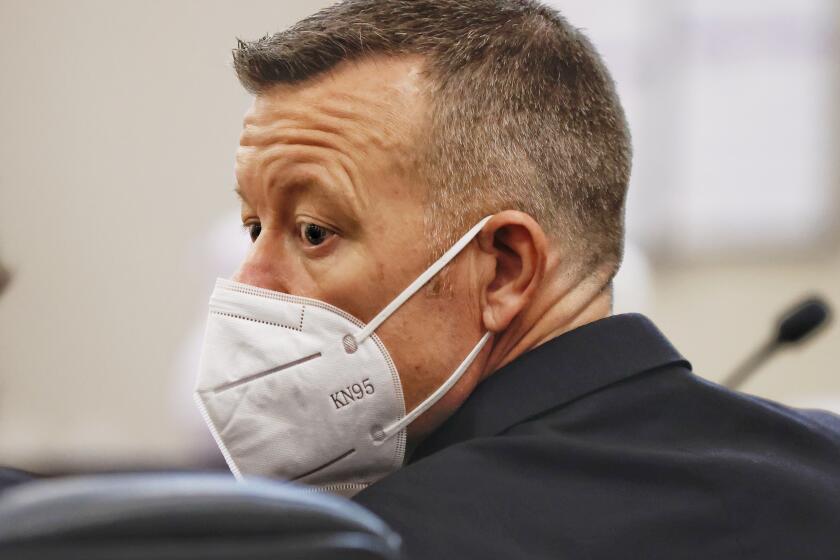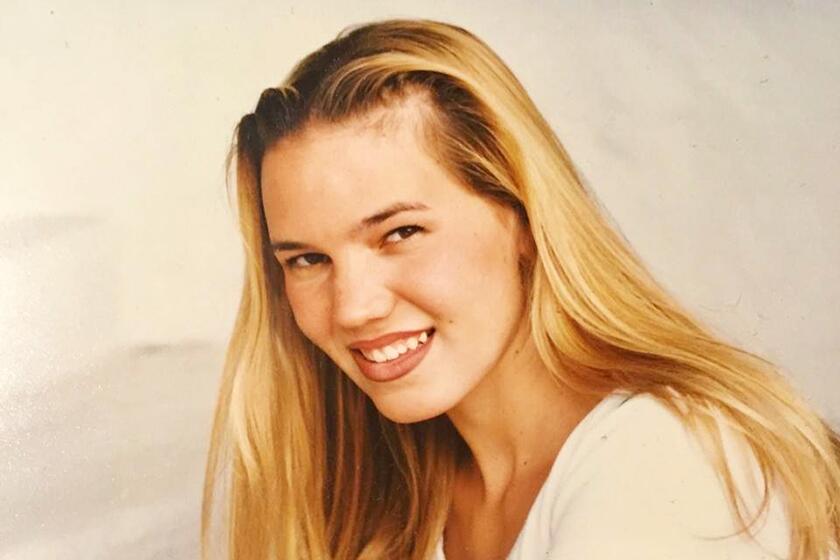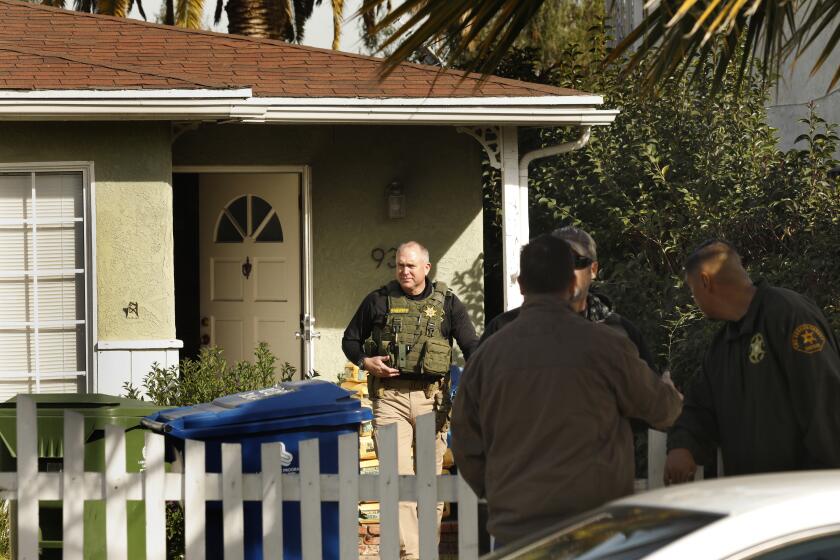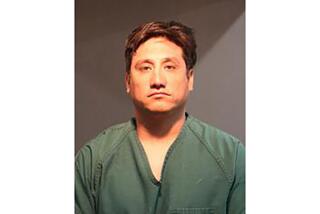‘No bones, no teeth, no body parts.’ Ruben Flores never dug Kristin Smart’s grave, lawyer says
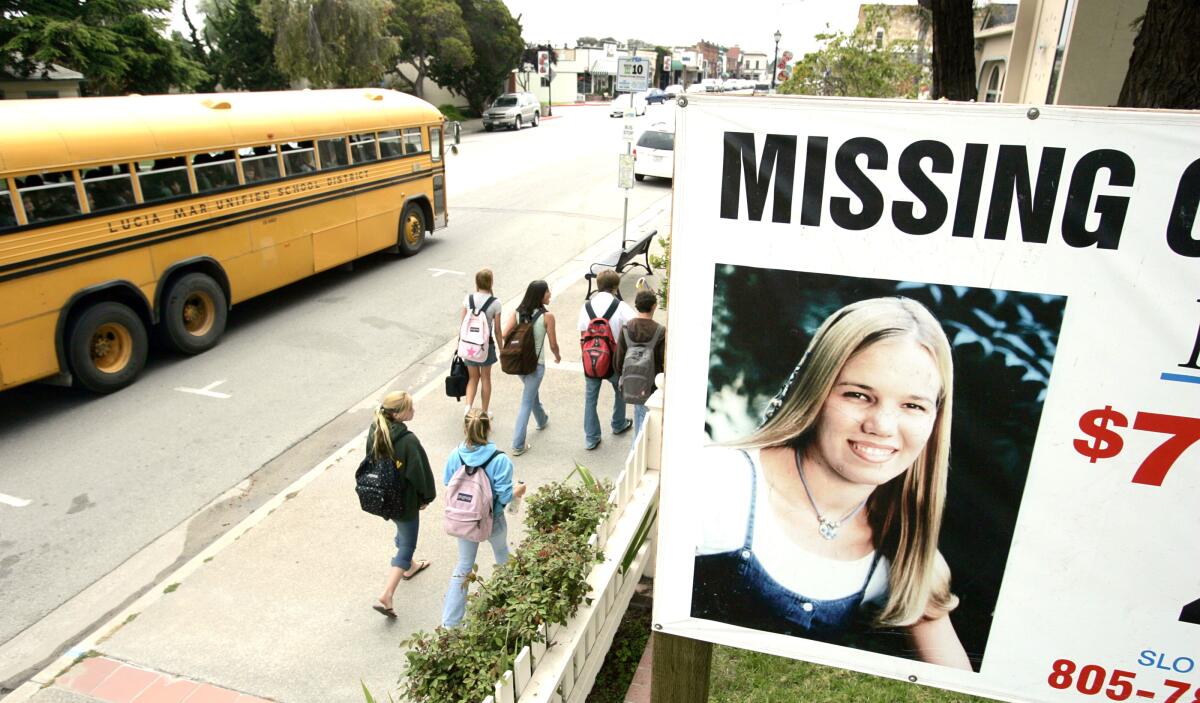
SALINAS, Calif. — With a jury already deliberating whether to find Paul Flores guilty of the 1996 murder of Cal Poly San Luis Obispo student Kristin Smart, a second jury on Wednesday began considering the fate of his father, who is charged as an accessory to the crime.
Ruben Flores’ attorney, Harold Mesick, told jurors the evidence shows 19-year-old Smart was “not happy” at Cal Poly and may still be alive.
Flores, 81, is being tried along with his 45-year-old son. The case was moved by a San Luis Obispo County judge more than 100 miles north to ensure fair legal proceedings. Two juries have heard evidence simultaneously over 11 weeks. One is deliberating Paul Flores’ fate. The other heard closing arguments Wednesday in the case against Ruben Flores.
“It is the intent to read the verdicts one after the other,” Monterey County Judge Jennifer O’Keefe said of the separate charges.
Closing arguments begin in the trial of Paul Flores, accused in the 1996 killing of college student Kristin Smart.
Deputy Dist. Atty. Chris Peuvrelle told jurors that Ruben Flores helped his son conceal Smart’s remains under his deck in Arroyo Grande, Calif., for decades.
Peuvrelle said that when Paul Flores killed the college student in May 1996 inside his dorm, he made a call. “He knew the one person who would help with a dead girl on his bed was his father,” the prosecutor said. “It was his version of a 911 call.”
Peuvrelle said Flores raped or attempted to rape and eventually killed Smart before hiding her remains with the help of his father. Although Smart’s body has never been found, she was declared legally dead in 2002.
Her body, Peuvrelle said, was the key evidence of a crime. “Ruben Flores has been helping him for the last 26 years,” the prosecutor said.
But Mesick countered that Smart is still missing.
“The state has done a great job of demonizing Paul Flores and my client,” the defense attorney said in his closing remarks. But “my client is absolutely innocent. He has not dug a grave in his life. I think this case screams reasonable doubt.”
Prosecutors in the Kristin Smart murder trial turn to graphic images and testimony from two women who testified Paul Flores raped them.
Mesick called the prosecution’s theory that Ruben Flores helped his then-19-year-old son move a body from his dormitory room and bury it beneath his deck — where the remains were allegedly removed in 2020 — “ludicrous.”
“What distinguishes this case from most cases is the lack of physical evidence,” Mesick said, boldly asking jurors to return a quick verdict to send a message to prosecutors.
“There are no bones, no teeth, no body parts. Kristin Smart may be just missing,” he said. “She was not happy at Cal Poly. It is reasonable to infer she is alive somewhere.”
The mystery over the 1996 disappearance of Kristin Smart took a new turn Wednesday when a judge ruled that Paul Flores will be tried for murder.
Smart was last seen walking with Paul Flores near residence halls on campus on May 25, 1996, after attending a party. But Peuvrelle told jurors that Flores, a fellow Cal Poly student, had “hunted” her for months, frequently appearing where she was, including her dormitory.
The night of the party, he appeared out of the darkness to walk her home after she had passed out on a lawn, the prosecutor said.
Mesick countered that Flores was there when Smart fell down and “he picked her up.”
“He was doing a good deed. He was not hunting her,” he said.
Since the trial’s start in July, Peuvrelle has sought to piece together a narrative of how during a four-day period when Flores was not seen on campus, he allegedly removed Smart’s body with the help of his father and buried it beneath the deck of his father’s Arroyo Grande house.
Ruben Flores, the prosecutor alleged, kept people away from the deck for years. Then, in 2020, as police were zeroing in on the house, a neighbor testified that she saw a trailer back up to the property.
Peuvrelle said that when they eventually searched Flores’ home after his arrest in April 2021, they found a “trophy room” with multiple items tied to the Smart investigation, including a note that stated, “Dig the yard.”
He showed a stark piece of ground below the deck and said, “This is Kristin’s grave.”
On Tuesday, San Luis Obispo County authorities arrested longtime suspect Paul Flores along with his father in connection with Smart’s slaying.
A soil scientist and archaeologist testified that ground radar showed an anomaly in the soil and indications of bodily fluids that were consistent with a body having been buried and removed, the prosecutor repeatedly reminded jurors. The hole was 6 feet by 4 feet by 4 feet. Archaeologist Cindy Arrington, Peuvrelle noted, said that the hole was dug by hand and that fluid had leaked into the soil slowly, creating a bath-like ring.
Showing slides from a PowerPoint presentation, Peuvrelle said that a chemical test conducted by an independent lab showed “positive” for the presence of human blood in the soil, and that fibers recovered from the soil matched the colors of Smart’s clothing.
Mesick, however, said expert defense witnesses indicated the blood test that was used is invalid for soil. He said there would have been gallons of liquid had a body been there.
“The amount of blood is so minuscule ... it could be anyone’s blood. It could be Ruben Flores’ blood,” he said. “I am going to tell you it is not Kristin Smart’s blood.”
Despite numerous investigations, searches and legal procedures, it took 24 years for an arrest to be made in the disappearance of Kristin Smart.
To find Flores guilty of accessory to murder, the jury must first find that his son committed first- or second-degree murder, Peuvrelle reminded jurors.
Peuvrelle said testimony from two women — identified during the trial as Sarah Doe and Rhonda Doe, who said Paul Flores raped them decades after Smart vanished — supports the prosecution’s theory that Flores sexually assaulted Smart, then killed her and hid her body.
“The only truthful verdict is Ruben Flores is guilty of accessory,” Peuvrelle told the jury.
More to Read
Sign up for Essential California
The most important California stories and recommendations in your inbox every morning.
You may occasionally receive promotional content from the Los Angeles Times.
